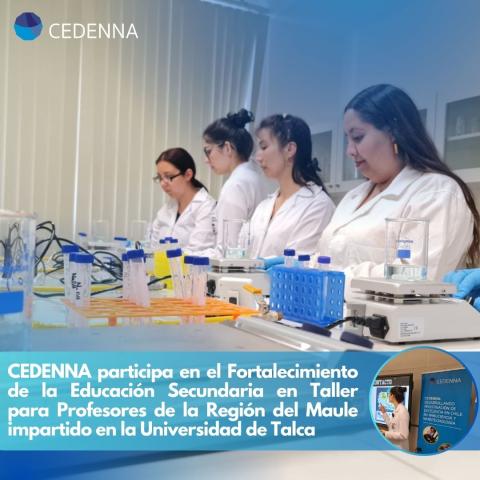
Around 50 teachers from 9 communes of the Maule Region participated in an innovative day of workshops, including “Public health and biomedicine: a systemic and technological approach for teachers”, “Geometry teaching for basic cycle” and “Games and challenges in Mathematics from 8 years to infinity.”
The activities, organized by the Center for Nanomedicine, Diagnosis and Drug Development (ND3 Center) in conjunction with the Faculty of Educational Sciences of the University of Talca, were supported by the Center for Nanoscience and Nanotechnology, CEDENNA, through the Dr. Cristian Vilos, head of the center's Nanobiomedicine Line.
At the end of the workshops, held at the University of Talca, Dr. Vilos indicated that it is very important to generate this type of activities because “we have a social responsibility that goes beyond doing excellent science” and that involves sharing with the community, with teachers and students, knowledge and areas that are not present on a daily basis.
"It is very relevant that this reaches students and teachers, because otherwise the speed at which frontier knowledge is transmitted to people in everyday life is very slow... it can take years," he said.
Furthermore, the researcher referred to the role that CEDENNA has developed in these activities, specifically thanks to the multidisciplinary and collaborative exercise that the center has imposed on the work of scientists: "collaborative work is what today allows us to do this, to develop and grow." , collaborate and move forward; therefore, CEDENNA has an important role, since it links us and encourages us to continue collaborating on this type of initiatives.
The workshops were held in virtual mode (Zoom) between January 2 and 4. And on January 5, an in-person session was held at the Linares Campus of the University of Talca.
- Log in to post comments







